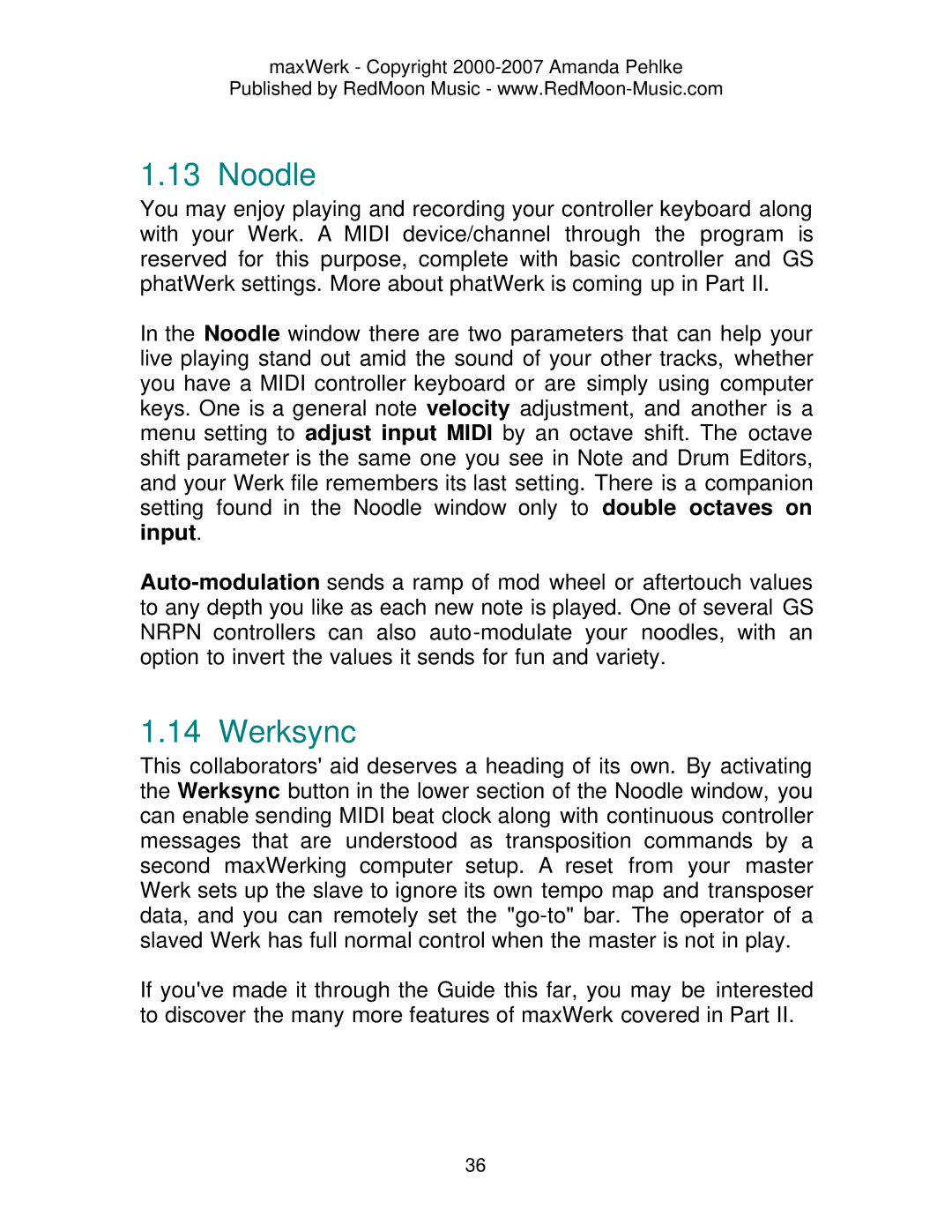maxWerk - Copyright 2000-2007 Amanda Pehlke
Published by RedMoon Music -
1.13 Noodle
You may enjoy playing and recording your controller keyboard along with your Werk. A MIDI device/channel through the program is reserved for this purpose, complete with basic controller and GS phatWerk settings. More about phatWerk is coming up in Part II.
In the Noodle window there are two parameters that can help your live playing stand out amid the sound of your other tracks, whether you have a MIDI controller keyboard or are simply using computer keys. One is a general note velocity adjustment, and another is a menu setting to adjust input MIDI by an octave shift. The octave shift parameter is the same one you see in Note and Drum Editors, and your Werk file remembers its last setting. There is a companion setting found in the Noodle window only to double octaves on input.
1.14 Werksync
This collaborators' aid deserves a heading of its own. By activating the Werksync button in the lower section of the Noodle window, you can enable sending MIDI beat clock along with continuous controller messages that are understood as transposition commands by a second maxWerking computer setup. A reset from your master Werk sets up the slave to ignore its own tempo map and transposer data, and you can remotely set the
If you've made it through the Guide this far, you may be interested to discover the many more features of maxWerk covered in Part II.
36
